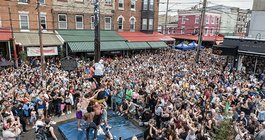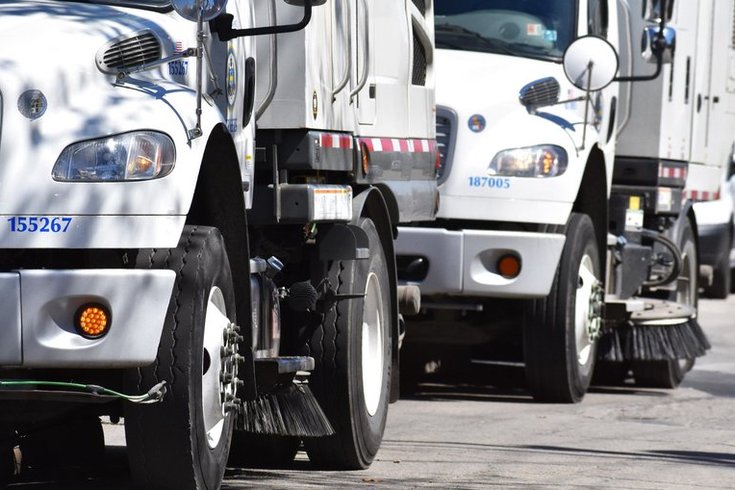
April 01, 2024
 City of Philadelphia/Facebook
City of Philadelphia/Facebook
Philadelphia's street-sweeping program runs from April 1 to Nov. 1 in 2024 and includes 14 neighborhoods. In seven of them, more blocks are included this year.
No, it's not an April Fools joke: Philadelphia's street-sweeping program has started back up.
The annual program, which runs April 1 through Nov. 1, includes mechanical sweepers that clean streets from curb to curb and teams of people who remove trash and debris from sidewalks.
Street sweeping occurs in 14 neighborhoods, though the city is expanding the program in seven of them this year – Frankford, Logan, Nicetown, North Central, Paschall, Strawberry Mansion and West Fairhill. The other seven neighborhoods are Germantown, Kensington, Point Breeze, Port Richmond, South Philadelphia, Southwest and West Philadelphia.
Each street in these neighborhoods is cleaned once a week between Monday and Thursday. Parking is restricted on some streets on those days during two-hour intervals that last from 9-11 a.m., 11 a.m. to 1 p.m. and 1-3 p.m. Signs noting the dates, times and parking requirements for the streets in the expanded areas have been posted except in Frankford, city officials said.
Residents who fail to move their cars will received warnings throughout most of April. Beginning Monday, April 29, cars parked in the path of street cleaners will be ticketed.
The city's StreetSmartPHL website has a map that shows where – and when – street sweeping will occur this year. To view them, click on the button that says "SweepPHL" and then type in an address in the search box.
The city's street-sweeping program uses mechanical brooms, sidewalk sweepers and push brooms to clear trash from the streets and sidewalks. In some areas, backpack blowers are used. In other words, if is trash is there, it probably can be swept up. And trash compactors may be used to remove illegally dumped materials.
The expansion of the program will help connect the neighborhoods that receive street sweeping.
"Integrating the current areas already receiving mechanical street sweeping allows for a proactive citywide strategy that addresses quality of life issues in every neighborhood prioritizing the most underserved communities first," said Carlton Williams, director of clean and green initiatives at the Department of Streets.
The street-sweeping program began on an experimental basis under Mayor Jim Kenney in 2019. The 14 neighborhoods were chosen because they were among those with the highest concentrations of litter.
Mayor Cherelle Parker said the expanded program gives residents a firsthand view of how the city is making neighborhoods "clean, green and more vibrant."
"We are proud to provide these additional city services to supplement street sweeping efforts in neighborhoods that need it the most," Parker said. "Not only will these efforts contribute to a city that is not only cleaner and greener, but also equitable and resilient."
The program's expansion coincides with Parker's plans for a clean, green city — an important part of her campaign platform. In her first budget address, Parker proposed a five-year, $246 million investment in cleanup and sanitation programming, including $36 million next fiscal year. Her budget called for a residential cleaning program with dedicated cleaning crews and equipment for each district, and hiring 100 new sanitation workers.
$36 million in 2024 and $246 million over the next five years for cleanup and sanitation programming. It also called for a residential cleaning program with dedicated cleaning crews and equipment for each district, hiring new 100 sanitation workers and more. City Council must pass a budget by May 31.